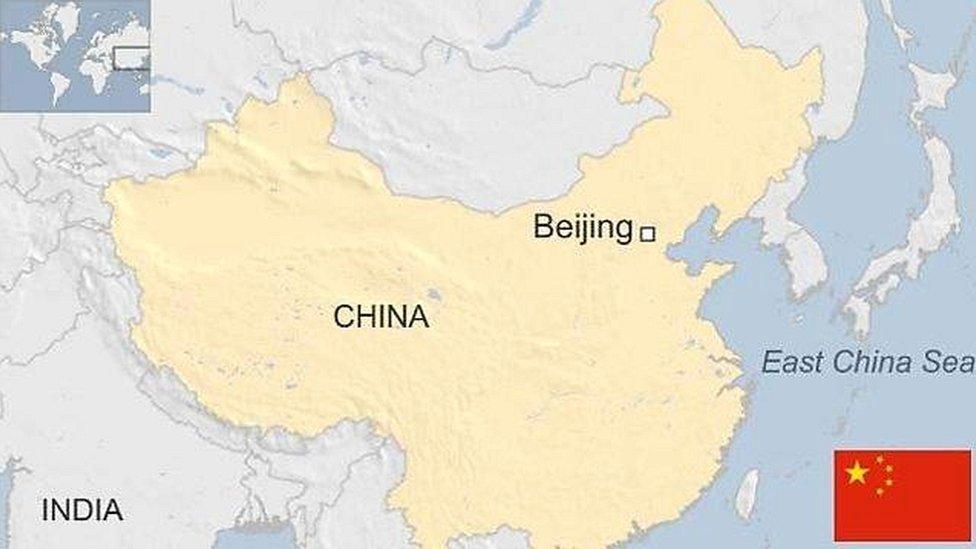Indian Prime Minister Narendra Modi joins China's Weibo
- Published
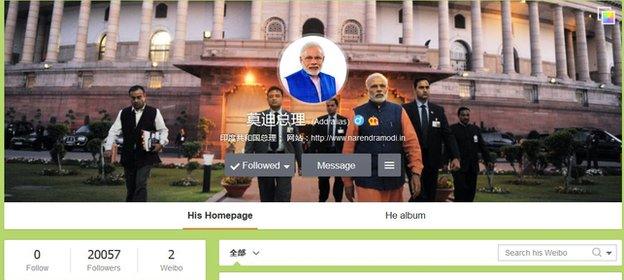
Mr Modi racked up thousands of followers within hours of setting up his account
India's PM Narendra Modi has joined China's main microblogging service Weibo, gaining thousands of followers by the hour and plenty of comments too.
In just five hours he amassed more than 20,000 followers, external, with more joining in.
His first post read: "Hello China! Looking forward to interacting with Chinese friends through Weibo."
Mr Modi, set to visit China this month, got mostly welcoming responses. But posts calling for India to return territory to China were also popular.
Here are some of the themes that excited and exercised his new Chinese audience in the few hours his account has been in existence.

'How are you Mr Modi?'
Thousands posted welcoming messages for Mr Modi. Some invited him to visit their home provinces in China, while others expressed hope of greater Sino-Indian co-operation.
"China and India are the countries that have the biggest influence in Asia and are fast developing nations. There is no reason why we can't advance together," wrote one user.
Others took the opportunity to respond in English using the literal translation of the Chinese greeting "ni hao ma", which means "how are you?" and sometimes came out as "Are you OK?"

A number of Weibo users also called him "ah san" or "san ge".
These are derivations of an old colloquial term for Indians - "hong tou ah san" - which some consider racist or derogatory these days, says BBC Chinese's Martin Yip in Hong Kong.

A Buddhist message
Mr Modi's second post referenced Buddhism and unity in Asia. India celebrates Buddha's birthday on 4 May.
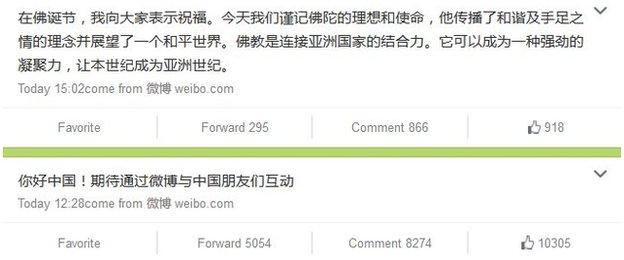
"I wish everyone happiness on Buddha's Birthday. Today we remember Buddha's ideals and commands, he preached the ideals of harmony and brotherhood and had a vision of a peaceful world. Buddhism is a unifying force across Asian countries. It can be one form of strong cohesion as the world enters the Asian era," he said.
There are believed to be many adherents to Buddhism in China, and an estimated 18% of China's population are Buddhist.
Mr Modi did not reference the Dalai Lama, the exiled spiritual leader of Tibetan Buddhism, who has made his home in the Indian town of Dharamsala.

But Tibet still made an appearance
The most popular responses (which garnered the most number of "likes") were on an area under Indian control referred to as South Tibet, called Zangnan in China, and located in the Indian state of Arunachal Pradesh.
The top five replies to Mr Modi all called for India to give back the territory, which was ceded to India in 1962 following a border conflict.
"Zangnan belongs to China", and "Welcome, welcome! By the way, Zangnan is ours," were among the responses.
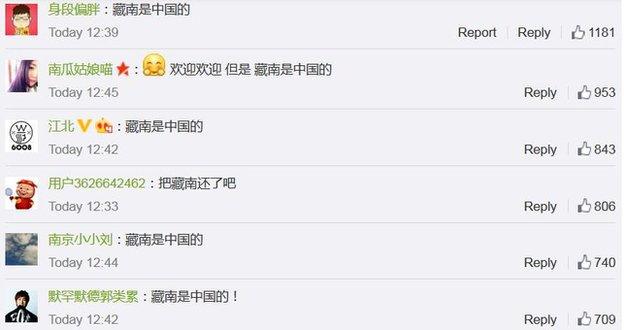

'Have you learned Chinese?'
Mr Modi's countrymen were also intrigued, with some Indians asking on Twitter if he was going to pick up a new language.
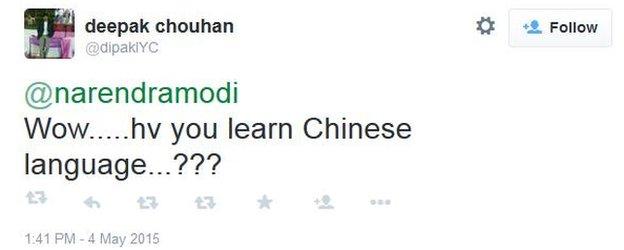
Mr Modi joins a growing list of international figures and celebrities, such as David Cameron and Ellen Degeneres, who have signed up for Weibo to connect with a Chinese audience.
Mr Modi is known to be an avid social media user, and has 12 million followers on Twitter alone, external.
- Published23 April 2024
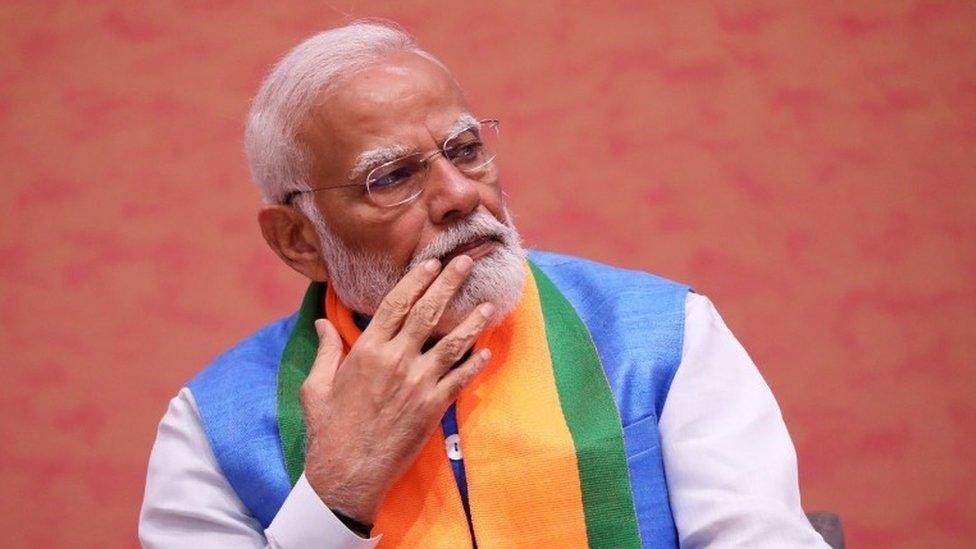
- Published10 March
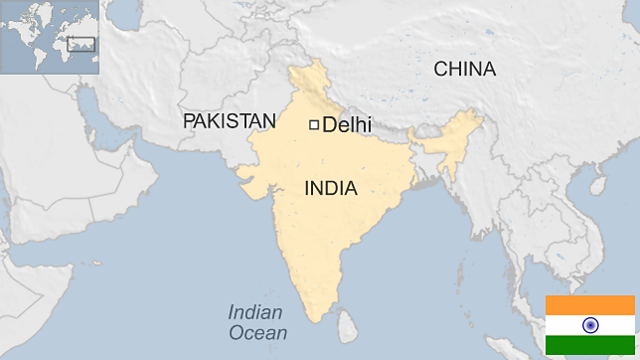
- Published25 August 2023
